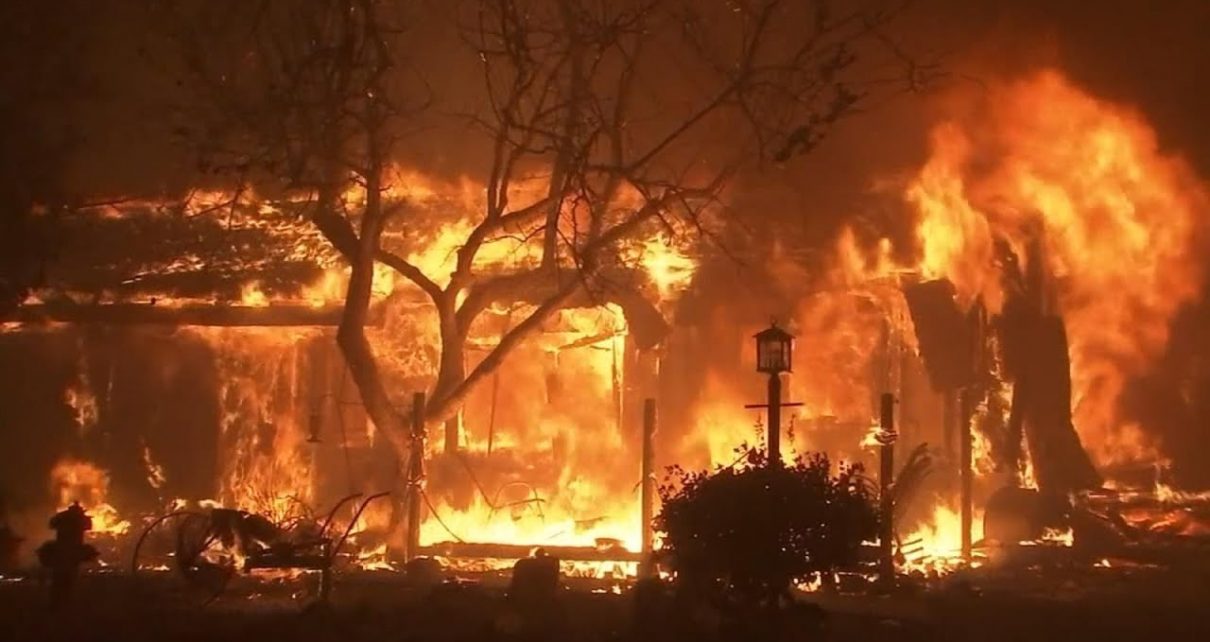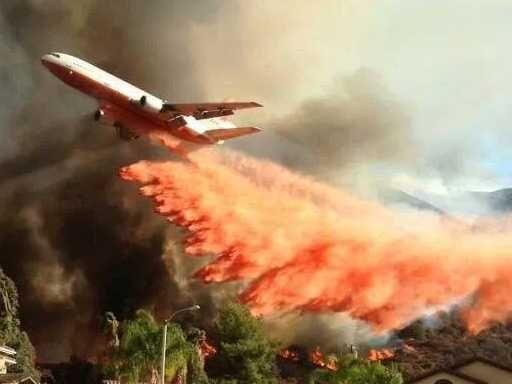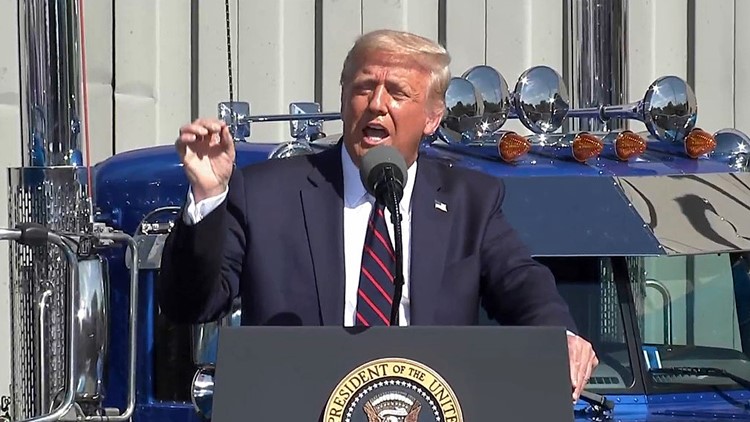
California Wildfires. (Photo: youtube)
For Those Fighting Wildfires, It Is Simply About Saving Lives And Protected Areas
The Globe interviews a wildland firefighter about what it’s like and what they think about the issues surrounding wildfires
By Evan Symon, October 31, 2019 8:07 pm
While most stories about the upswing of wildfires and power outages concern local, city, and state response, a big part of the equation is often left out: the firefighters themselves.
The Globe interviewed ‘Stanley’ Johnson, a wildfire firefighter for the Bureau of Land Management, who has battled wildfires all over the Western United States, about what it’s like fighting fires in the middle of one of worst series of wildfires in California on record. Earlier this year he helped join up to fight wildfires in California. And even though the fires are making headline news across the nation, it’s nothing new for him.
“When I first started I thought it was amazing that so many people cared about wildfires but didn’t really have a clue about who was fighting them,” said Johnson. “But, over time, you get used to it.”
“Wildfires tend to be non-political out in the field. You don’t care if you’re saving a left-wing Hollywood actors mansion or a mostly Republican-leaning cul-de-sac of houses. I’ve done both. Our job is to stop fires. That’s it.”
Johnson has helped out on some of the recent wildfires in California, including the infamous Camp Fire last year. And the way many are fighting fires isn’t with water.
“They have planes and helicopters fly by with water or chemicals, but that isn’t stopping them. All it’s doing for us is slowing the fire down. This way we can do controlled burns. We cut down larger things like trees and burn smaller bits of vegetation. Anything that can catch on fire and spread.”
“It’s important the public knows this because we’ve been called out on doing this. Homeowners have yelled at us for digging up their backyards or burning part of the grassland on their ranch to stop these fires. On more than one occasion the local police had to show up and essentially tell them they can either have this or the fire come to burn down their house.”
“The biggest danger for us are tree branches falling off, vehicle accidents and everything like that. But one of the biggest dangers to other people are property owners literally coming out to try and fight us on this. We know what we’re doing, but they don’t. Most people, especially the closer you are to cities, expect a fire brigade to come out and hose an area down. But you can’t fight wildfires that way. You lose every time.”
Conditions for these firefighters are also less than ideal.
“It depends who exactly you’re working for,” Johnson said. “You know, it can be a local fire station or it could be the Bureau [of Land Management]. But out there, especially during large wildfires that can take weeks to put down, we’re on 16-hour days. So you work 16 hours, you get 8 hours off where you sleep relatively close to fires in tents or simply outside. It depends. And we do that on two week intervals with a two day break in between. That’s the schedule for really large fires, but you get the gist.”
“And since we’re often not nearby a town, shower and washing facilities may not exist so much.”
“With planned blackouts and a greater number of forest fires quickly becoming the norm, those putting the fires out often have the same issues as they do on their job: do what it takes to stop the fire.”
“Most of us controlling these fires generally support the outages. Wind spreads fire very fast, and if a spark is stopped, you’ve saved acres of vegetation, probably some buildings and possibly lives.”
“We don’t like how it was done, not giving people warning like that and just leaving them to their own devices. But it’s either that or we have to go out there again. We have to go to some farm that erupted in flames because a wire dropped and sparked up a blaze.”
“What really gets us is purposely lit fires, you know, arson. Naturally occurring wildfires, like those caused by lightning, we deal with. Same with those caused accidentally. But what we can’t stand are arsonists.”
Recently, a man from Missouri was charged with trying to start wildfires in Northern California for no reason.
“We’re out there every day risking our lives to save entire forests, and homes, and sometimes entire towns. We don’t need people like that. Say what you will about California, but these fires need to be stopped before people are in danger. Everyone, no matter what state or race or creed or economic level, deserves to be protected from these fires.”
“And that’s what we’ll do.”
Going into November, wildfires across California, including the particularly devastating Kincade fire in Northern California, are gradually becoming more contained thanks to the efforts of Johnson and hundreds of other firefighters across the state.
- Bill to Require Law Enforcement Disclosure if AI Was Used To Help Write Reports - August 7, 2025
- Gov. Newsom Files FOIA Request To ‘Expose True Cost’ Of L.A. Federal Troop Deployment for Anti-ICE Riots - August 6, 2025
- California Redistricting: How Newsom’s Plan Will Demolish Hard Fought GOP Gains - August 6, 2025



